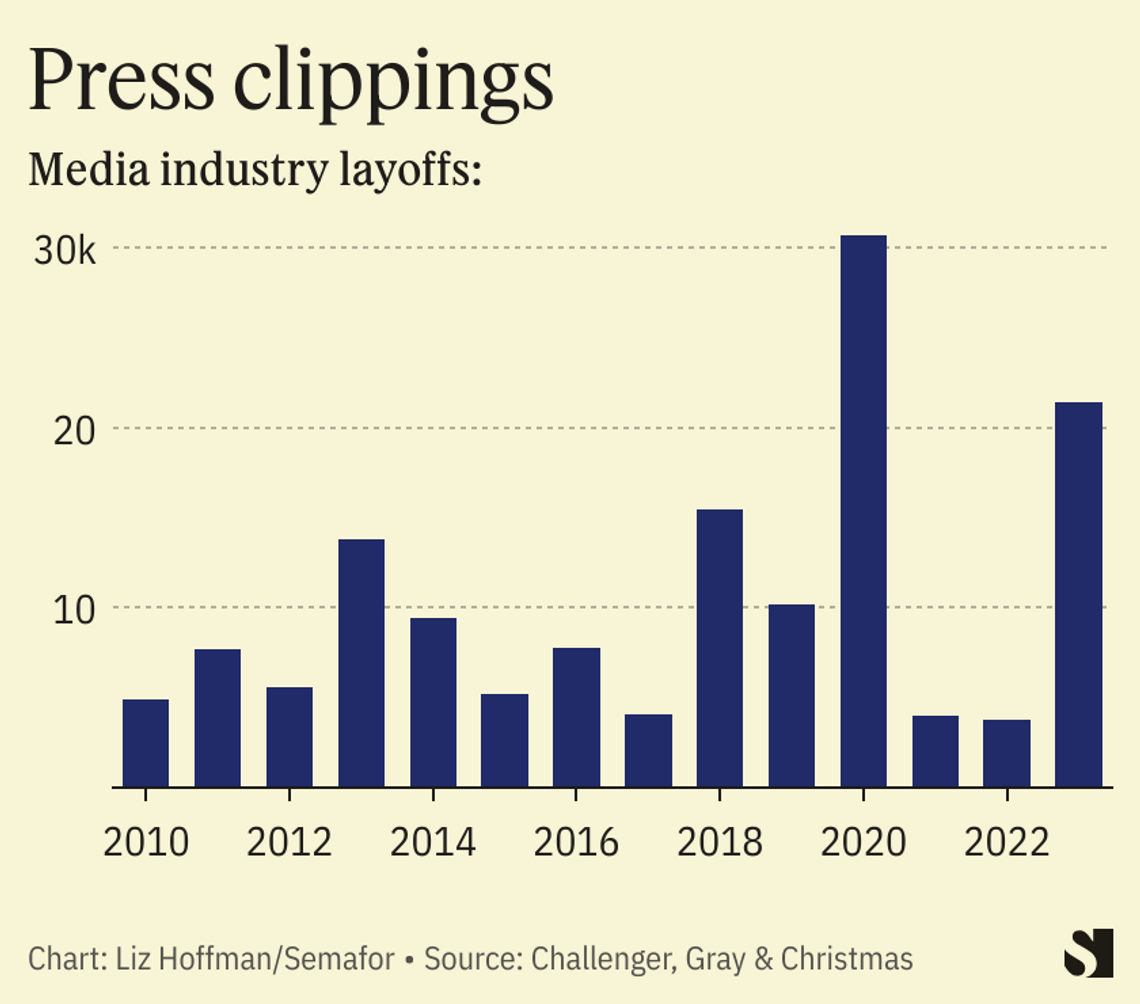⁛ NewsPOTUS Punting: For the second year in a row, President Joe Biden has declined to participate in the traditional pre-Super Bowl interview. Last year, the White House pitted Fox’s various news groups against each other, and blamed internal corporate conflict for its decision to cancel. This year, White House communications director Ben LaBolt said the White House hopes “viewers enjoy watching what they tuned in for — the game.” Poor campaign strategy and “optics” is one thing: The reason presidents traditionally participated in the pre-Super Bowl interview was the ability to draft off of the most watched television event of the year. In an environment where media attention is increasingly fractured, this is even more valuable. But beyond the giant, waving the political red flag of a major candidate seeking the presidency and passing up an opportunity to take advantage of the biggest platform possible, it’s pretty bleak news for journalism when a Democratic president running on restoring American norms won’t sit down one-on-one with a serious mainstream television or print reporter. The White House loves to complain that the media doesn’t cover the president’s successes. Yet given an opportunity, Biden punts. Tucker at the Bolshoi: Tucker Carlson was spotted at Moscow’s famous ballet, prompting reasonable speculation that he’s in town to interview Vladimir Putin. Carlson’s X-centric media venture has been slipping steadily out of relevance, but he represents exactly the kind of marginal but hard-to-ignore voice Moscow seeks to promote, and an interview would give Putin a platform to fuel Congressional Republicans’ opposition to aiding Ukraine. Anger at the Journal: Wall Street Journal editor Emma Tucker is facing significant internal blowback over cuts the paper made to its Washington, D.C. bureau last week. Since joining the paper last year, Tucker has demoted top editors and made moves to restructure the paper’s editorial departments. But last week’s cuts of at least 20 editors and journalists in Washington prompted criticism from the staff union and open anger in the newsroom. One person familiar with her plans told Semafor that Tucker is headed to D.C. to address the bureau on Monday, but will likely face a frosty or outright hostile reception among remaining staff. Killing The Messenger: Adding insult to injury, the Messenger emailed staff last week requesting that the company’s employees send company laptops back at their own expense. Some staff countered that if the company wants their laptops back, it will need to pay up. Gli abbonamenti: Italy’s Il Post, an explainer-heavy digital news site, has hit 80,000 paid subscribers to a Guardian-style membership program, its founder Luca Sofri tells us. It’s a bit of rare good news in an embattled business, for an explainer-heavy, youth-oriented site that has “managed to build a trustworthy news brand in a media ecosystem awash in sensational stories, gossip, sex scandals, and outright fabrication.” Dept. of Corrections: We included a chart reflecting media layoffs, rather news layoffs, in last weeks’ newsletter. Thanks to Institute for Independent Journalists founder Katherine Reynolds Lewis for the catch. Here’s the accurately grim chart.  ☊ AudioStill a few bucks in podcasts: Joe Rogan could make up to $250 million from his new deal with Spotify for the most listened to podcast in the U.S. The mechanics: The deal will see Rogan get a share of the revenue his show generates on the platforms, part of a wider push by Spotify to pay smaller minimum guarantees to its talent, and instead aim to distribute risk through revenue-sharing deals. ✰ HollywoodParamount Auction: Byron Allen is pushing his way into the Paramount Global sale, and support in Washington could balance out Hollywood’s dismissive view of the mogul. The Best/Worst Job in Hollywood: The Great Mentioner is hard at work spinning up names to replace Netflix film boss Scott Stuber. Poor Elmo: Larry David is promoting another season of “Curb Your Enthusiasm” as only he can: By throttling a muppet. | 






